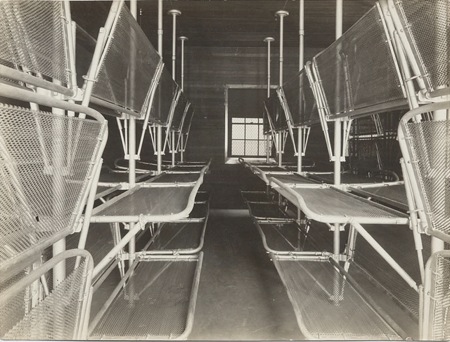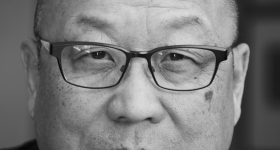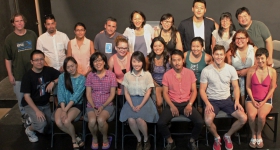 In the countdown to Obama's inauguration, the media is going crazy with speculation about what Obama will change in the White House and on Capitol Hill. Some of this speculation is trivial, some earth-shattering. So let's shake it out this week and see what turns up for new policy that will affect Asian Pacific Americans.
In the countdown to Obama's inauguration, the media is going crazy with speculation about what Obama will change in the White House and on Capitol Hill. Some of this speculation is trivial, some earth-shattering. So let's shake it out this week and see what turns up for new policy that will affect Asian Pacific Americans.
First up is the inevitable immigration debate, which centers around Latin American, and particularly Mexican, blue collar immigrants, but ends up affecting all immigrants. Common speculation is that the criminalization of immigrants, and especially the pursuit of those criminalized immigrants, will be scaled back considerably.
That may not be saying much, though. The Bush administration has been crazy like a fox, reallocating resources away from white collar crime, organized crime, and corruption -- and even the war on drugs -- to "illegal" immigration. According to the NYT:
Immigration prosecutions have steeply risen over the last five years, while white-collar prosecutions have fallen by 18 percent, weapons prosecutions have dropped by 19 percent, organized crime prosecutions are down by 20 percent and public corruption prosecutions have dropped by 14 percent, according to the Syracuse group’s statistics. Drug prosecutions — the enforcement priority of the Reagan, first Bush and Clinton administrations — have declined by 20 percent since 2003.
Apparently, what they DO prosecute in the war on drugs is lower-level courier crimes and possession charges. "Drug traffickers now routinely break up their loads into smaller quantities to avoid stiffer federal penalties, law enforcement authorities say." The war on drugs has always been a war on America's working poor. Ignoring drug kingpins and organized crime, and aggressively prosecuting users and street dealers, is an obvious attempt to control the population that uses certain cheap drugs, not to address the root causes of drug usage. We all know this.
Likewise, the effort to criminalize undocumented immigrants, rather than addressing the reasons for immigration, is an equally obvious attempt to control the labor of the population that immigrates.
America's working poor staffs our service economy. As citizens, they have the ability to unionize and the right to demand fair wages and benefits, so the right wants to keep them away from more important industrial and agricultural sectors that would be vulnerable to unionization. Likewise, our undocumented labor force has decreasing access to unionization and labor rights, which is why traditional blue collar jobs in agriculture, food processing, industry, construction, and the like fall increasingly into the hands of undocumented laborers. We saw this happening in real time in New Orleans, where working poor populations evacuated to Houston and elsewhere were actively discouraged from coming back, but laws were passed allowing undocumented laborers to work construction legally for sub-minimum wage, without documentation.
To put it bluntly, all this is about securing control of US service and industry away from the worker. Welcome to the new Gilded Age.
Clearly, Obama's appointment of Hilda Solis-- yes, the savvy, working class, pro-union, second generation Latina Congresswoman -- as Labor Secretary (not to mention Napolitano as head of Homeland Security) is a signal to the government at large that labor policy is changing. Clearly, Obama's administration will view and treat immigration differently. But this effort will necessarily begin with them having to untangle a mass of executive orders and rules tying employers, law enforcement, and the INS to obstructive worker verification programs that slow down processing and put whole industries in danger. Obama and Solis -- tied up in confirmation hearings -- aren't talking at all about what they're planning, leaving the media spinning fantasies of comprehensive immigration reform and bold action.
And what about Asian Americans? Probably our biggest concern is being able to bring family over; so Asian American advocacy groups will be pushing for more open family immigration policies. This is, however, NOT a direct labor issue. It affects all immigrant families, across all races and national origins, and all classes. Considering the fact that Obama appears to be treating immigration as a labor and security issue -- and not as a civil rights, social justice, familial, or domestic issue -- it's likely that Asian American immigration concerns could get swept under the rug.
On the other hand, undocumented immigration is increasing from China, and some estimates put the number of Chinese undocumented at nearly 300K. No one's entirely sure what's causing this sudden influx, but we do know that the price tag for being flown (yes flown) into the US illegally is around $25,000 -- not a working-poor solution. Middle class professional immigration, which has been one of the major engines of Asian immigration since the 1965 reform, is a hidden labor issue.
That means that middle class Asian immigration is driven by a tango between increasingly good Asian higher education and professional training, American entrepreneurial and science-based professional needs, and what the native-born American middle class can offer in any particular decade. This spans the whole range: from experienced Asian microentrepreneurs walking into small business loans in low-income communities that residents themselves can't get -- to engineers, technicians, and medical personnel staffing the entire middle range of positions at healthcare, industrial, and tech concerns.
There's no question that these labor issues will become extremely contentious in our new Great Depression. The positions that Asian middle class immigrants are taking ARE the jobs that native born Americans want. They just might not be qualified for them. The only question here is: how aware and prepared are Obama and his dream team? What can Asian American immigration expect from the next four years?
What do you guys think?









Comments